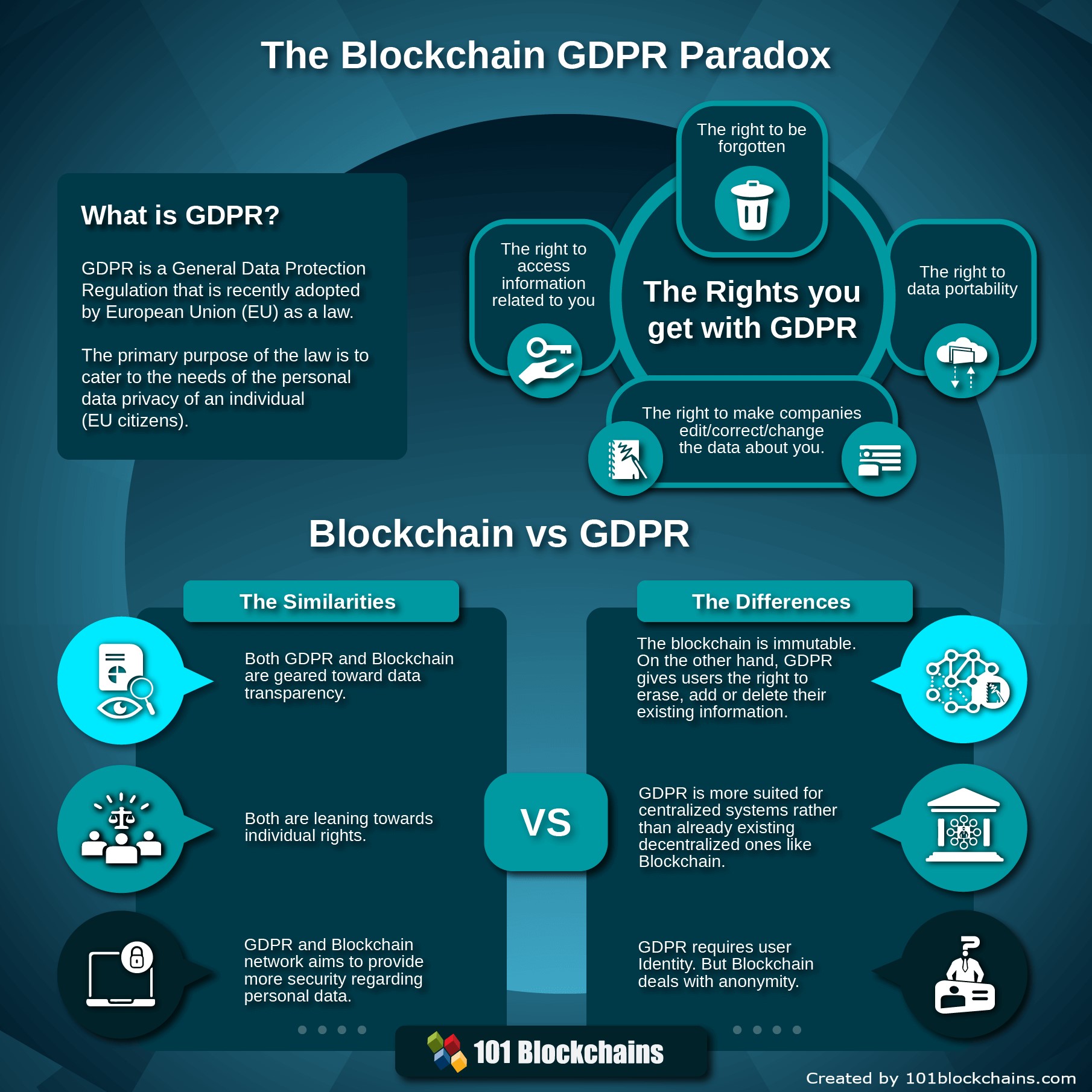Blockchain’s Role in Data Security

- Understanding the Basics of Blockchain Technology
- The Evolution of Data Security with Blockchain
- How Blockchain Ensures Data Integrity and Immutability
- Exploring the Decentralized Nature of Blockchain for Data Security
- Challenges and Opportunities of Implementing Blockchain in Data Security
- Future Trends in Blockchain Technology and Data Security
Understanding the Basics of Blockchain Technology
Blockchain technology is a decentralized, distributed ledger system that securely records transactions across a network of computers. Each block in the chain contains a cryptographic hash of the previous block, timestamped transaction data, and a unique identifier. This structure ensures the integrity and immutability of the data stored on the blockchain.
One of the key features of blockchain technology is its transparency. All transactions are visible to all participants in the network, providing a high level of accountability and reducing the risk of fraud. Additionally, the decentralized nature of blockchain technology means that there is no single point of failure, making it highly secure against cyber attacks.
Blockchain technology is often associated with cryptocurrencies like Bitcoin, but its applications extend far beyond digital currencies. Industries such as supply chain management, healthcare, and voting systems are exploring the use of blockchain technology to improve data security and transparency.
By leveraging blockchain technology, organizations can enhance data security by creating a tamper-proof record of transactions. This can help prevent unauthorized access, tampering, or deletion of sensitive information. Additionally, the use of smart contracts on the blockchain can automate and enforce the terms of agreements, further enhancing security and reducing the risk of human error.
In conclusion, understanding the basics of blockchain technology is essential for grasping its role in data security. By utilizing blockchain technology, organizations can enhance the integrity, transparency, and security of their data, ultimately improving trust among stakeholders and mitigating the risks associated with traditional centralized systems.
The Evolution of Data Security with Blockchain
Data security has always been a top priority for businesses and individuals alike. With the rise of blockchain technology, there has been a significant evolution in how data is secured and protected. Blockchain, a decentralized and distributed ledger technology, has revolutionized the way data is stored and verified.
One of the key features of blockchain technology is its immutability. Once data is recorded on a blockchain, it cannot be altered or tampered with, providing a high level of security and trust. This makes blockchain an ideal solution for securing sensitive information such as financial transactions, medical records, and personal data.
Another important aspect of blockchain technology is its transparency. All transactions recorded on a blockchain are visible to all participants in the network, creating a level of accountability and trust. This transparency helps to prevent fraud and unauthorized access to data, making it a powerful tool for enhancing data security.
Blockchain technology also utilizes cryptographic algorithms to secure data. Each block of data is encrypted and linked to the previous block, creating a chain of secure information. This cryptographic security ensures that data remains confidential and cannot be accessed by unauthorized parties.
Overall, the evolution of data security with blockchain has provided a new level of protection for sensitive information. By leveraging the decentralized and transparent nature of blockchain technology, businesses and individuals can ensure that their data is secure and tamper-proof. As the use of blockchain continues to grow, so too will the advancements in data security, providing a safer and more secure digital environment for all.
How Blockchain Ensures Data Integrity and Immutability
Blockchain technology plays a crucial role in ensuring data integrity and immutability. By utilizing a decentralized and distributed ledger system, blockchain provides a secure and transparent way to store data. This technology uses cryptographic hash functions to create a unique fingerprint for each block of data, making it virtually impossible to alter or tamper with the information stored within the blockchain.
One of the key features of blockchain is its ability to create a chain of blocks that are linked together in a chronological and linear order. Each block contains a reference to the previous block, along with a timestamp and transaction data. This structure makes it easy to track any changes made to the data, as any alteration would require changing all subsequent blocks in the chain, which is computationally infeasible.
Moreover, blockchain networks rely on a consensus mechanism to validate and add new blocks to the chain. This ensures that all participants in the network agree on the validity of transactions, further enhancing the security and integrity of the data stored on the blockchain. Additionally, the decentralized nature of blockchain means that there is no single point of failure, making it highly resistant to cyber attacks and data breaches.
Exploring the Decentralized Nature of Blockchain for Data Security
Exploring the decentralized nature of blockchain for data security reveals a revolutionary approach to safeguarding sensitive information. Unlike traditional centralized systems, blockchain distributes data across a network of nodes, making it nearly impossible for hackers to compromise. This decentralized structure enhances security by eliminating single points of failure and reducing the risk of data breaches.
One of the key features of blockchain technology is its use of cryptographic algorithms to secure data. Each block in the chain is linked to the previous one using a unique hash function, creating a tamper-proof record of transactions. This ensures the integrity and authenticity of the data, making it highly resistant to manipulation or unauthorized access.
Furthermore, blockchain’s consensus mechanisms, such as proof of work or proof of stake, add an extra layer of security by requiring network participants to validate transactions. This process helps prevent fraudulent activities and ensures that only legitimate transactions are added to the blockchain. As a result, data stored on a blockchain is considered to be more secure than data stored in centralized databases.
In conclusion, the decentralized nature of blockchain technology offers a robust solution for enhancing data security. By leveraging cryptographic algorithms and consensus mechanisms, blockchain provides a secure and transparent platform for storing and managing sensitive information. As organizations continue to prioritize data security in an increasingly digital world, blockchain is poised to play a crucial role in safeguarding data from cyber threats.
Challenges and Opportunities of Implementing Blockchain in Data Security
Implementing blockchain in data security presents both challenges and opportunities for organizations looking to enhance their cybersecurity measures. While blockchain technology offers a decentralized and tamper-proof system for storing and managing data, there are several factors to consider when integrating it into existing security protocols.
- One of the challenges of implementing blockchain in data security is the complexity of the technology itself. Organizations may require specialized expertise to set up and maintain a blockchain network, which can be costly and time-consuming.
- Another challenge is the scalability of blockchain networks. As more data is added to the blockchain, the size of the network grows, potentially leading to slower transaction speeds and increased storage requirements.
- Additionally, ensuring the privacy and confidentiality of data on a blockchain network can be a challenge. While blockchain offers transparency and immutability, it can be difficult to implement privacy measures without compromising the integrity of the data.
Despite these challenges, there are also opportunities for organizations to leverage blockchain technology for enhanced data security. By using blockchain for data storage and management, organizations can benefit from increased transparency, traceability, and security of their data.
- Blockchain can also help organizations streamline their data security processes by automating tasks such as data verification and authentication. This can lead to improved efficiency and reduced risk of human error.
- Furthermore, blockchain technology can enable secure data sharing between parties, allowing for more efficient and secure collaboration on sensitive information.
In conclusion, while there are challenges to overcome when implementing blockchain in data security, the opportunities for enhanced cybersecurity are significant. By carefully considering the implications of blockchain technology and addressing potential challenges, organizations can strengthen their data security measures and better protect their sensitive information.
Future Trends in Blockchain Technology and Data Security
As technology continues to evolve, the future trends in blockchain technology and data security are becoming increasingly important. Blockchain, with its decentralized and immutable nature, is poised to play a crucial role in enhancing data security across various industries. Here are some key trends to watch out for:
- Interoperability: One of the key trends in blockchain technology is the focus on interoperability. This means that different blockchain networks will be able to communicate and transact with each other seamlessly, enhancing data security by creating a more interconnected and secure ecosystem.
- Scalability: Another important trend is the focus on scalability in blockchain technology. As more and more data is being stored on the blockchain, it is essential to ensure that the network can handle the increasing load without compromising security. Scalability solutions such as sharding and layer 2 protocols are being developed to address this challenge.
- Privacy: With data privacy becoming a growing concern, blockchain technology is evolving to incorporate privacy-enhancing features such as zero-knowledge proofs and homomorphic encryption. These features allow users to transact and store data on the blockchain without revealing sensitive information, thereby enhancing data security.
- Regulatory compliance: As blockchain technology becomes more mainstream, regulatory compliance is becoming a key focus area. Governments and regulatory bodies are working on creating frameworks to ensure that blockchain technology is used in a secure and compliant manner. This will help enhance data security by providing clear guidelines for businesses and users.
Overall, the future trends in blockchain technology and data security are geared towards enhancing the security and privacy of data stored on the blockchain. By staying abreast of these trends and implementing best practices, businesses can ensure that their data remains secure in an increasingly digital world.



